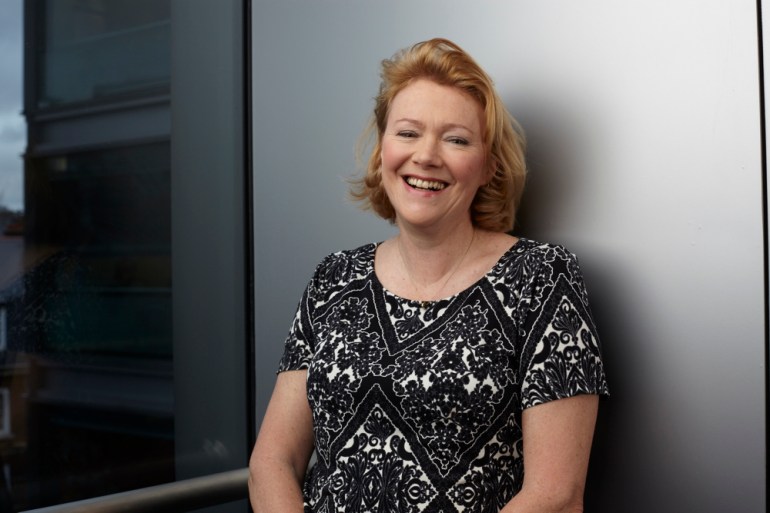Sara Ramsden.
Sara Ramsden has prided herself throughout her career on commissioning factual and documentary projects on important topics – like female genital mutilation, terminal illness and porn abuse – but with a tabloid twist.
The creative director of Love Productions, who was until recently commissioning editor for specialist factual at Channel 4, tells IF there’s a responsibility that comes with access to bandwidth, and that there’s often little point in making something on a serious social topic if few people are going to see it and it won’t make an emotional impact. Ditto if it’s for “the elite” or only for the people who already believe in the project’s message.
“I do want to win hearts and minds. When I do… things that are really important, that I really care about, I want to make them accessible and attract a much wider audience,” she says.
Ramsden was a keynote speaker at this week’s Australian International Documentary Conference (AIDC), where she discussed risk in commissioning and formats.
One of the shows Ramsden is most proud of commissioning while at Channel 4 is The Cruel Cut, about female genital mutilation in Somali communities in Britain. She says a lot of effort was put in to make sure the show stood out, and it worked. It was nominated for a BAFTA in 2014 in the current affairs category, and an associated e-petition reached over 100,000 signatures, which automatically triggered a government debate.
“I wanted to do it really in your face and really tough, and really pulling no punches,” Ramsden tells IF.
“The film had lots of street stunts and we borrowed some of the language of the [UK satirical show] The Revolution Will Be Televised... We did some quite outrageous actions in it. I’m really, really proud of that film. It’s audacious, it’s brave, it’s life-affirming.”
Making an emotionally engaging, bold show for a broad audience isn’t easy but is worth the effort, says Ramsden.
“It’s less effort to do a television essay. There’s an old tabloid editor in Britain called Kelvin McKenzie – who is much loathed and loved by some – and he always said it’s way easier to write the headline for The Guardian than it is to write the headline for The Sun newspaper. And it’s true; it’s harder to make a subject accessible to a broad and more tabloid audience than just to do the straight, conventional approach.”
The production company behind The Cruel Cut was Love Productions, which Ramsden joined last December. They have also previously worked with her at Channel 4 on My Last Summer, about terminally ill people, Benefits Street and the upcoming My Baby’s Life: Who Decides?
“One of the reasons why Love’s a company I’m very happy to go to is they’ve made some of the films for me that I’ve been proudest of. Love are very prepared to push the boundaries,” she says.
“They’re a very brave company. They’re prepared to do what some other people might think was going too far – that’s what I love about them. I feel very much in sync with their approach to taking risks, which is what you have to do to stand out from the crowd in television – you have to be prepared to go out on a limb and have the courage of your convictions.”
Love is best known for producing The Great British Bake Off, but Ramsden sees her role as taking the company into “non-cake related areas”. She plans to pitch projects to both UK and US commissioners that the company hasn’t worked with before.
As well as Bake Off, successful Love Production formats Filthy Rich and Homeless and Muslims Like Us have been adapted into other countries, including Australia. Screentime is also currently making an Aussie version of RDF’s The Secret Life of 5 Year Olds for Ten, a show that Ramsden first commissioned when at Channel 4.
What allows a format to travel? Ramsden’s response is simple: it’s when it’s about a fundamental truth about humanity.
In terms of Secret Life, it’s an authentic look at people’s different natures and human interaction.
“Everybody who watches it as an adult, thinks ‘Oh god there, that was me, I was like that.’ The things that are going on in it are endless demonstrations of all the things that we experience with our making and breaking friendships, our power battles in the workplace, our competition with the opposite sex, all of these things. And yet these children are doing those things without social constraints… as adults we’re not allowed to say what we really think.”
In terms of Australian formats, Ramsden – who spent three months in 2011 consulting for the ABC – says she is an “enormous fan” of CJZ’s Go Back To Where You Came From.
But in general, Ramsden encourages broadcasters to develop their own formats, even though she understands in a smaller country like Australia it’s tempting to be drawn towards the reassurance that comes with a tested foreign format.
“I think it’s really good and healthy for a territory to be pursuing its own formats. It’s good in the long run because if you can get a format that can travel, and it brings more money back into the country and it makes the territory more vibrant.
“I’m shooting myself in the foot here, because obviously I want Australia to buy lots of formats from Love Productions. But as a broadcaster, I would advise always trying to develop your own formats rather than buying from overseas.”


